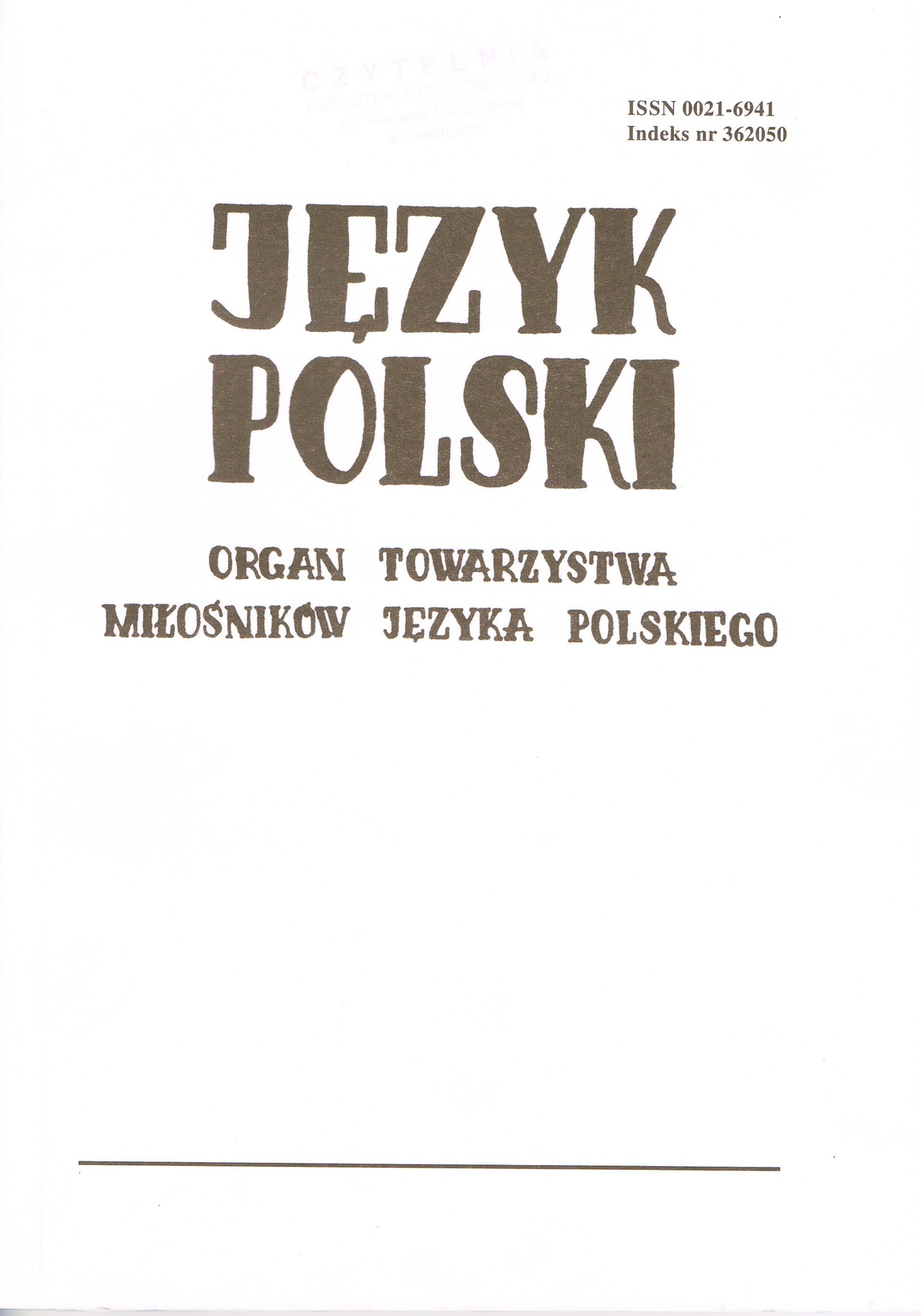Komparatywy "gorszy" oraz "gorzej" jako wykładniki intensyfikacji (w języku ogólnopolskim i gwarach)
Comparatives "gorszy" and "gorzej" as indicators of intensification in general Polish and dialects
Author(s): Monika BuławaSubject(s): Language and Literature Studies
Published by: Towarzystwo Miłośników Języka Polskiego
Keywords: units expressing evaluation; comparatives; indicators of intensification; dialect lexis
Summary/Abstract: In the article the author analyzes the use of comparative forms of evaluative units "zły", "źle" (and their corresponding superlatives) where they function as indicators of intensification. In general Polish the comparatives "gorszy" and "gorzej" in the role discussed refer to objects evaluated negatively and maintain their connection with evaluative comparison the expression of which is their primary function. In dialects we can observe a more advanced semantic development of the adverb gorzej — there connections have been noted in which it carries a solely quantitative meaning while it ceases to express evaluation. Use of the comparative "gorszy" in the sense of ‘more’ is only to be found in dialects. This specific meaning is encountered in syntactic structures unknown to the contemporary general Polish language and is used to form descriptive comparative adjectives which identify the qualities evaluated negatively.
Journal: Język Polski
- Issue Year: 2014
- Issue No: 4
- Page Range: 289-302
- Page Count: 14

